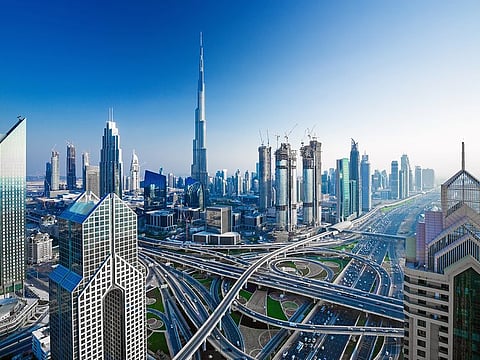We are hopeful about the next 50 years in the UAE
Christians in the UAE remain grateful for dialogue, openness, and mutual respect

Late one night in September 1968, three years before the UAE became a nation, a Bedouin woman was giving birth at the Oasis Hospital, a Christian mission hospital in Al Ain. Complications required a C-section delivery, and the mother needed blood. A member of the missions staff who was there recalled personnel “chasing around to all the companies at midnight trying to find a donor with the right blood type.” Out of 50 people tested, only the attending physician, Dr. Marian Kennedy, and one of the nurses had the right blood type! So, Dr. Marian interrupted the procedure, gave blood herself, and then completed the delivery.
Years earlier, Sheikh Zayed bin Sultan al Nahyan and his brother, Sheikh Shakhbut, had welcomed a Christian Mission Hospital in Al Ain (Buraimi oasis), where Sheikh Mohammed bin Zayed Al Nahyan was born in 1961. Al Ain was strategically situated for a medical mission. The founding physician, Dr. Burwell Kennedy (Marian’s husband), wrote in his report after the initial survey trip in 1959, “As the maps show, literally ‘all roads lead to Buraimi.’” Dr. Kennedy observed, “A hospital there would be easily accessible to the Bedu of the desert, to the mountain tribes in their isolated villages, and to the many travellers, hunters, and other visitors passing to and fro.” As a result, the groundwork was laid for mutual respect and service between Evangelical Christians and the Emirati people, that predates the nation itself.
Visionary leadership of the UAE
From the very beginning, under the leadership of Sheikh Zayed, religious tolerance and openness were valued. Sheikh Zayed was not only a progressive and charismatic leader. His foresight extended beyond politics — to commerce, culture and even religion. He opposed extremism and promoted dialogue among people of different religions. The official UAE Yearbook called Sheikh Zayed “an eager advocate of tolerance, discussion and a better understanding between those of different faiths, and in particular … an ardent [promoter] of dialogue between Muslims and Christians, recognising that this is essential if mankind is ever to move forward in harmony.”
Only four months after the UAE was founded, the Evangelical Church of Dubai (later The United Christian Church of Dubai) was formed, with the permission of Sheikh Rashid bin Saeed Al Maktoum, first meeting in Holy Trinity Church, where one leader recalled, “sometimes we had to decide whether to sit inside and suffocate or sit outside and sweat!” Later the church moved to the Dubai Petroleum American School in Jumeirah.
One of the initial leaders of the Evangelical Church remembered that first National Day (1971): “There was an optimism among the local people,” he recalled. “The two men who were most visible were Sheikh Zayed, who became President, and of course Sheikh Rashid in Dubai, who was highly regarded as a man who was open, friendly, a man who stood by his word.” As the church grew in later years, the Dubai Ruler granted land in Jebel Ali for an Evangelical Church building. Today, congregations from several language groups meet in the building, including Arabic, Mandarin Chinese, Tagalog, and English.
Generous welcome of the UAE rulers
Both the UAE and the Evangelical Christian Church in Dubai are celebrating their 50th anniversaries soon. For 50 years and more, Christians have been beneficiaries of the generous welcome of the UAE rulers. Since then, churches have been praying for the blessing of God on the people of UAE and the ruling families. As Scripture teaches, we pray for “kings and all those in authority, that we may live peaceful and quiet lives in all godliness and holiness.”
Today, Christians in the UAE remain grateful for dialogue, openness, and mutual respect. Observing National Day in 2012, the Gulf News said on its editorial page: “People of faith must talk to each other more in order to seek better understanding.” After all, Sheikh Zayed himself was an ardent advocate of interfaith friendship and dialogue.
This is our desire, as well — to love our neighbours as ourselves, to respectfully dialogue with them, and to be a blessing to the Emirati people. We are hopeful about the next 50 years in the UAE.
John Folmar is a senior pastor at the United Christian Church of Dubai
Sign up for the Daily Briefing
Get the latest news and updates straight to your inbox



